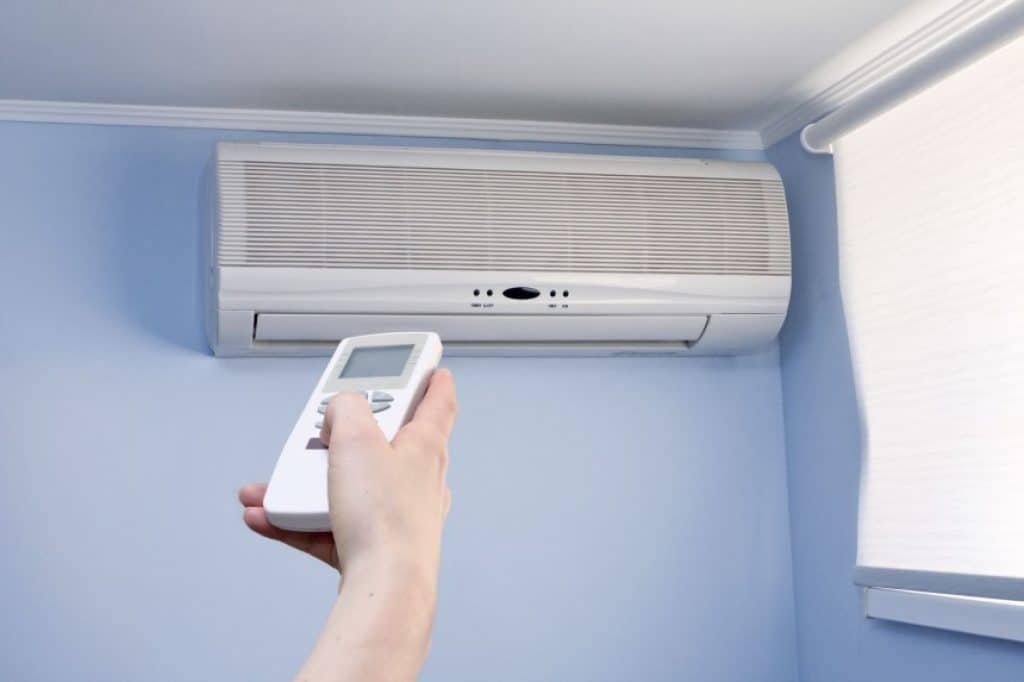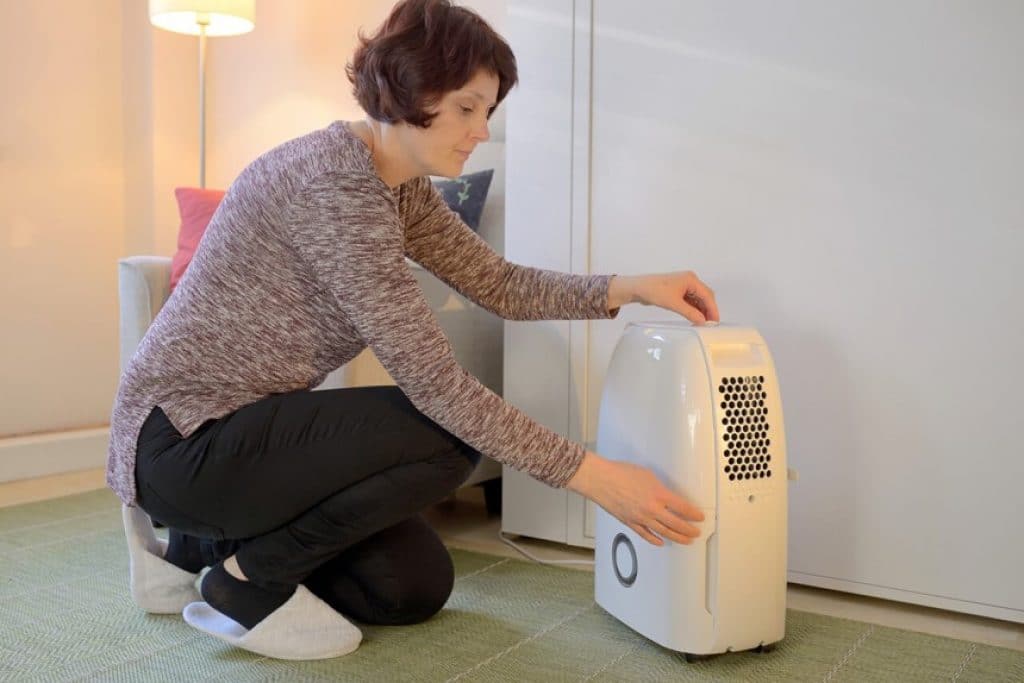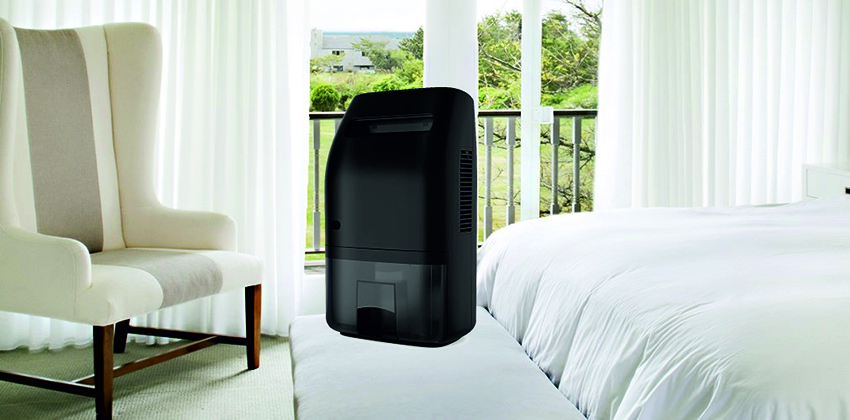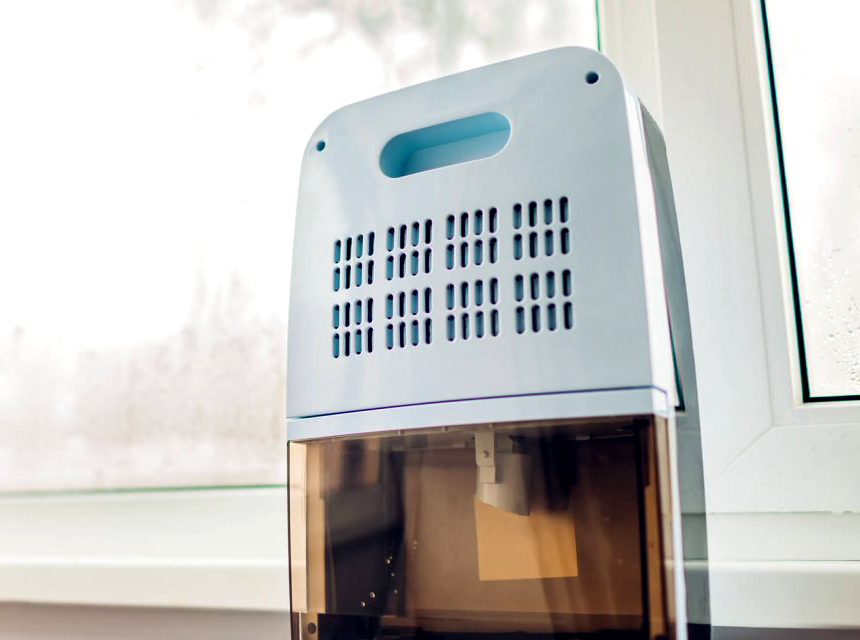

Have you ever wondered why so many people now are scrambling to buy dehumidifiers? They are almost as much in vogue as air conditioners. But what is the difference? The difference lies in the way they fulfill a similar purpose. Both are used to maintain an ambivalent atmosphere in the room.
However, the key is to understand that while a dehumidifier, consistent with its name, reduces the humidity in the room, subsequently warming it up, the air conditioner takes in the warm air from the room and cools it down. The air conditioner makes the room cool while the dehumidifier makes it hot. This is the first step to understanding the dehumidifier vs. air conditioner debate.
The dehumidifier is a sure shot way to reduce excess humidity pervading your room and ensuring that mold and fungi growth is kept at bay. For this, the dehumidifier has two coils- the evaporator coil and condenser coil. The moist air is taken into the device and passed over the evaporator coil. Evaporation occurs, and all the moisture dries up. This dry air is passed over the condensation coil, and out of the device comes warm air. It heats the room, and that ensures that no sort of growth gets a chance.

When air passes over the evaporator coil, it rids the air of moisture and heat. Then it passes over the condenser coil. Here, the process is tweaked a bit. The warmth produces over the condenser coil is directed out of the room, and subsequently, your asylum becomes cooler.
The operation involves similar equipment and yet is quite different. The dehumidifier seeks to heat your home and keep the air blowing while the air conditioner seeks to cool it down.
The operation is different because the dehumidifier uses the evaporation coil and condensation coil to take in the moisture, remove the water content from the air, and release hot air into the room.
The air conditioner, on the other hand, uses the two coils along with a compressor to ensure that as soon as the hot air enters the room, it is cooled down and circulated back immediately. The catch here is that only the evaporator or evaporator coil partakes in this process. The condenser is meant to direct the heat outside the room. Hence, the need for a portion of the unit to be placed outside the room as is commonly witnessed in the window ac.
If you have only ever used an air conditioner, you would know that the bill at the end of each month either leaves you in tears or with a smile but with tears of sweat pouring down your face. It either burns a hole through your pocket or your economical usage gives you uncomfortable dog days. An ac consumes quite a lot of energy.
The substitute is an air conditioner inverter that can save up to 70% of energy, but a dehumidifier is any day less of an energy-vampire. The dehumidifier consumes exponentially lesser energy than an ac. But at the end of the day, the two cannot replace each other. You have to decide the end goal and then decide on an appliance that consumes lesser energy.

Today, there are specifically designed portable dehumidifiers that come with wheels to lighten your load even further. Now you can even move it from one room to another every single day. Of course, you can also take your ac wherever you go, but for that, you have to take it down, carry it to the destination, drill more holes into your wall and reinstall it.
The fact that an ac consumes a lot of energy, thereby requiring you to shell copious amounts of money each month, attests to its not being a budget-friendly device. Indeed, you can get the unit at an affordable price, but you will need to maintain it regularly which means it is not a one-time investment.
This also applies to a dehumidifier to the extent that it will also require its share of maintenance, but that would be far less than that of an air conditioner. Apart from this, the unit itself will be quite cheaper than the ac unit.
Laying your baby in a hot, moist room would be dangerous. The dehumidifier can work wonders for the humidity and moisture and even ensure that your baby is protected from any fungal growth, dust, or mites. But it is also important to remember that the dehumidifier releases hot air which might not make the baby comfortable.
The cool air released by an air conditioner, on the contrary, is extremely healthy for the baby unless he/she has been medically advised to avoid it. The air conditioner is a better and healthier option for a baby as against a dehumidifier.
 In conclusion
In conclusionBoth these devices attempt to make your life at home easier. But they are not without their share of drawbacks and advantages. You need to compare both these electronics and see if the place where you live has a lot of humidity or it is simply hot. The dehumidifier can suck out humidity, but too little moisture in the air can also be a big problem, especially if there are infants in your home.
The air conditioner adds a layer of sterility to your accommodation and prevents the growth of mites or entry of dust particles in your home, but it can lead to respiratory issues, including the worsening of asthma. With both these devices, you need to ensure that you have checked your medical conditions, and they are suited for your body’s needs.
Despite there being so many choices of brands and sizes, both these devices cost quite a bit. In some cases, people even decide to buy both to combat the humidity and the heat (you should know that the air conditioner is ineffective in high humidity) to be used in conjunction with each other.
Then it does not remain a question of dehumidifier vs air conditioner. Nonetheless, the choice is still yours. It should be an informed one, and it should be benign on your purse as well. Take all these factors into consideration, and in the case of infants, take the advice of your medical practitioner before you expose them to these adjustments in room temperature and humidity. If everything checks out, your room can become a safe and clean haven.





